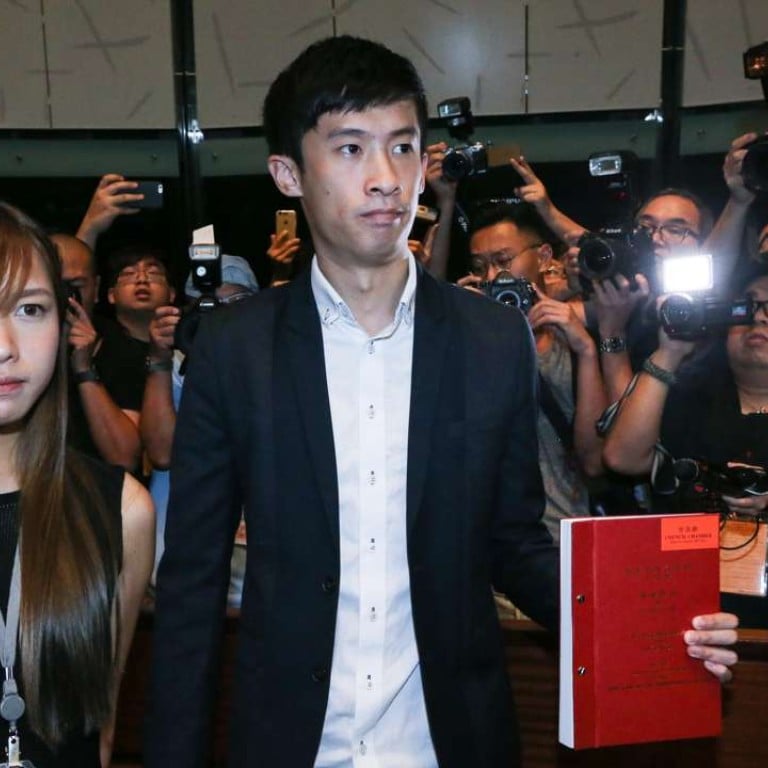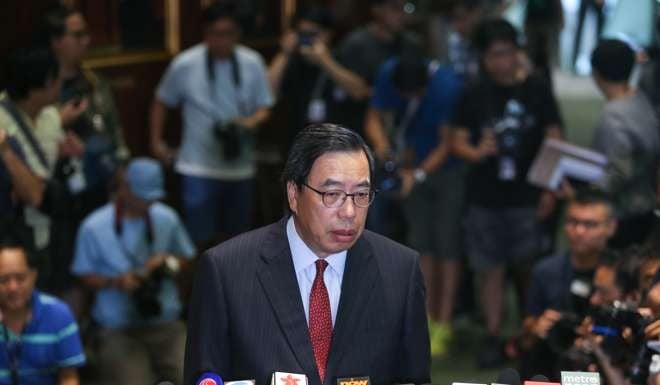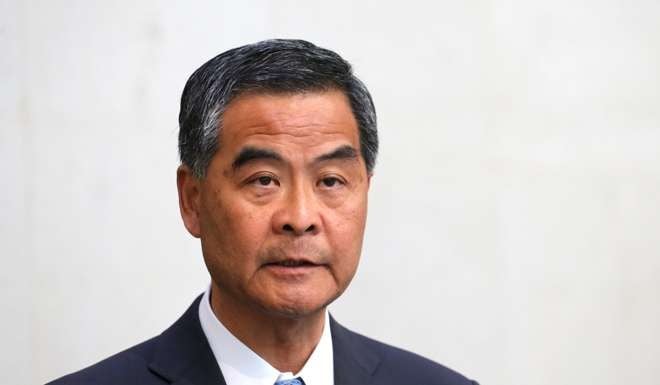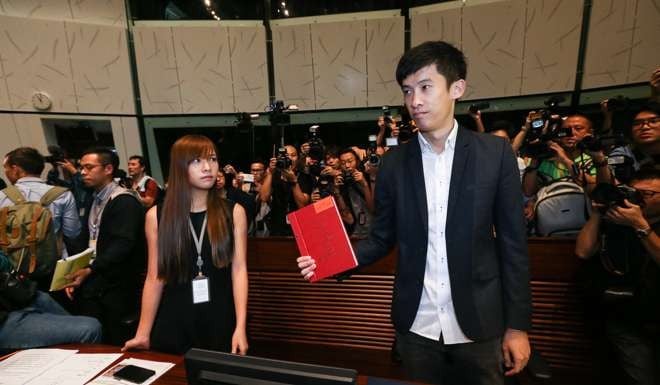
Beijing to interpret Hong Kong’s Basic Law over oath-taking saga
In the fifth interpretation of the Basic Law since the handover, National People’s Congress Standing Committee will meet on Thursday to discuss its intervention, signalling anger over independence sentiment
The mainland’s top legislative body may intervene in the row over two localist lawmakers’ swearing-in oaths with an interpretation of Hong Kong’s mini-constitution, sources have told the Post.
The National People’s Congress Standing Committee will meet tomorrow to discuss an interpretation of the Basic Law, signalling Beijing’s anger with Hongkongers pushing an independence agenda.
The committee’s deliberations will take place at around the same time the matter will be heard in the High Court in Hong Kong in a judicial review sought by the city’s government in an attempt to bar the two lawmakers from taking up their seats in the Legislative Council.
It will be Beijing’s fifth interpretation of the Basic Law since the 1997 handover. It is the first time it has pre-empted the city’s courts over a case for which an initial hearing has been held and full submissions yet to take place.

In 2005, the Standing Committee made a ruling over the number of years of the chief executive’s term after a Hong Kong lawmaker Albert Chan Wai-yip filed a judicial review into a planned legal amendment, but in that case no hearing was held.
The topic of interpretation was not on the original agenda for the committee’s eight-day meeting that began on Monday – a session held every two months.
Rita Fan Hsu Lai-tai, Hong Kong’s sole representative on the Standing Committee, is absent from the committee’s meeting.
The disclosure, which took many in Hong Kong by surprise, came hours after Chief Executive Leung Chun-ying said he would not rule out asking Beijing to interpret the Basic Law, over the controversial oath-taking on October 12 by the two lawmakers, Yau Wai-ching and Sixtus Baggio Leung Chung-hang, in which they swore allegiance to the “Hong Kong nation” and pronounced China as “Chee-na”, mimicking the offensive term Shina used by the Japanese during war time.

Leung’s warning departed from his administration’s previous assurances that Hong Kong’s courts could handle the issue, raising fears of a constitutional crisis.
Even last night, Secretary for Justice Rimsky Yuen Kwok-keung maintained the case to could handled within Hong Kong’s legal system.
“ I believe the case will be handled in a fair, just, and professional manner by the court and judges. “
Bastille Post, an online news portal, said “the reinterpretation would detail what kind of oath-taking situations should be rejected to ensure lawmakers pledged their allegiance” to China.

A Hong Kong government source said during the sixth plenum of the Communist Party’s central committee held in Beijing last week, committee members expressed indignation at the Youngspiration duo’s derogatory oath-taking and called for “effective actions” to rein in the calls for Hong Kong independence.
Underscoring the high stakes, Leung also confirmed yesterday he had cancelled plans to fly to Beijing for an economic conference to handle the case.
“Aside from the court case two days from now, it is very likely that their oath-taking and what they did and said afterwards will trigger other things, and I need to handle it in the next two or three days,” he said.
Under Article 158 of the Basic Law, the Standing Committee has the power to interpret the city’s mini-constitution.

But the execution of the Standing Committee’s power to issue interpretation has proved controversial in the past.
Hong Kong’s Court of Final Appeal and the government have asked before for interpretations.
The Standing Committee has also taken the initiative to issue interpretations uninvited, but such a move was criticised by Hong Kong’s legal sector as an attack on the city’s judicial independence.
Beijing has interpreted the Basic Law on four occasions. The most controversial was in 1999, when the Standing Committee effectively overturned the first landmark human rights ruling delivered by the city’s top court.
Zhang Xiaoming, director of Beijing’s liaison office in Hong Kong, said last night the localists’ derogatory words had crossed the bottom line of the “one country two systems” and seriously violated the country’s constitution and the Basic Law. “Any calls and actions advocating the Hong Kong independence must be sanctioned by the laws,” he said.
University of Hong Kong legal scholar Eric Cheung Tat-ming said yesterday Leung’s remarks would make people worry whether our courts could judge independently “as the government seems to be paving the way for an interpretation in case it loses the legal battle”.
Michael Tien Puk-sun, a Hong Kong deputy to the NPC, said it would be too early for the Standing Committee to make an interpretation as the court has yet to complete its hearing of the judicial review. “The move will deal a relatively big blow to the ‘one country two systems’. Beijing should have confidence in Hong Kong’s courts to handle the case,” Tien said.
Johnny Mok Shiu-luen SC, a Basic Law Committee member and a Senior Counsel acting for the government in the judicial review, told the Post he had not been informed of the interpretation plans nor got notice to attend the committee meeting in Beijing on Thursday.
“I have been standing aside to work on the case maybe that’s why I haven’t got the information,” he said. “I haven’t thought of this possibility [of the NPCSC ruling coinciding with the court hearing]. I will go to the court on Thursday as usual.”
Additional reporting by Joyce Ng and Christy Leung


